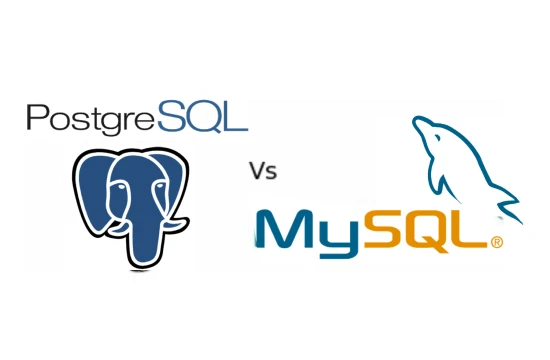What the Difference Between PostgreSQL vs MySQL?
PostgreSQL and MySQL are two of the most widely used open-source relational database management systems (RDBMS),but they differ significantly in their design, features, and ideal use cases. Understanding these differences is crucial for developers, database administrators, and businesses looking to choose the right tool for their projects. Let’s explore the key distinctions between PostgreSQL and MySQL in terms of functionality, performance, scalability, and more.
One of the primary differences lies in their underlying philosophies. PostgreSQL, often referred to as "the world’s most advanced open-source database," prioritizes extensibility and standards compliance. It adheres closely to the SQL standard and offers advanced features like support for complex queries, custom data types, and robust transaction handling. This makes PostgreSQL a preferred choice for applications requiring intricate data processing, such as geographic information systems (GIS),financial systems, and data warehousing. MySQL, on the other hand, is designed for simplicity, speed, and ease of use. It excels in straightforward, high-speed read and write operations, making it a popular choice for web applications, content management systems (CMS),and e-commerce platforms.
Performance is another area where these databases diverge. MySQL is renowned for its speed in handling simple queries and is optimized for read-heavy workloads, which is why it’s often paired with platforms like WordPress or Drupal. However, its performance can degrade with complex joins or large datasets. PostgreSQL, while slightly slower for basic operations, shines in complex query execution and write-heavy workloads. It includes advanced indexing techniques (e.g., GiST, GIN, and BRIN) and supports parallel query execution, making it more efficient for large-scale, data-intensive applications.
Scalability also sets these two systems apart. MySQL offers solid horizontal scaling through replication, with options for master-slave and master-master setups. However, its ability to handle very large datasets or complex transactions is somewhat limited compared to PostgreSQL. PostgreSQL provides superior support for vertical scaling and can handle massive datasets and concurrent users more effectively, thanks to its Multi-Version Concurrency Control (MVCC) system. This makes PostgreSQL a better fit for enterprise-level applications where data integrity and concurrency are paramount.
When it comes to data types and features, PostgreSQL has a clear edge. It supports a wide range of advanced data types, including JSON/JSONB for semi-structured data, arrays, and even user-defined types. This flexibility allows developers to build more sophisticated applications without relying heavily on external tools. MySQL supports fewer data types and has historically lagged in features like full-text search or geospatial data handling, though it has improved with recent versions (e.g., MySQL 8.0).
Security is another critical differentiator. PostgreSQL offers robust security features, including row-level security, advanced authentication methods (e.g., LDAP, GSSAPI),and detailed access controls. MySQL provides decent security but lacks some of the granular controls and advanced options found in PostgreSQL, which can be a concern for applications handling sensitive data.
When to Use PostgreSQL Over MySQL
While both PostgreSQL and MySQL are powerful open-source relational database management systems, there are specific scenarios where PostgreSQL outshines MySQL due to its advanced features, flexibility, and robustness. Choosing PostgreSQL over MySQL can significantly enhance performance, scalability, and functionality for certain types of applications. Here are the key situations where PostgreSQL is the preferred option.
One of the primary reasons to choose PostgreSQL is when your application requires complex queries and advanced data processing. PostgreSQL excels at handling intricate SQL queries, including those with multiple joins, subqueries, and window functions. Its query planner is highly sophisticated, allowing it to optimize and execute complex operations efficiently. This makes it ideal for data-intensive applications such as data warehousing, business intelligence platforms, and scientific research databases, where MySQL’s simpler query engine might struggle to keep up.
Another scenario where PostgreSQL stands out is when you need support for advanced data types and extensibility. Unlike MySQL, PostgreSQL supports a wide range of data types, including JSON/JSONB for semi-structured data, arrays, hstore (key-value pairs),and even user-defined types. This flexibility is invaluable for applications like content management systems with dynamic schemas, geospatial applications (thanks to its PostGIS extension),or any project requiring custom data structures. If your application demands more than basic relational data storage, PostgreSQL’s extensibility gives it a clear advantage.
Concurrency and transaction-heavy workloads are also areas where PostgreSQL shines. Its Multi-Version Concurrency Control (MVCC) system ensures that multiple users can read and write to the database simultaneously without conflicts, making it a top choice for enterprise applications with high concurrency needs. For example, financial systems, e-commerce platforms with complex transactions, or real-time analytics dashboards benefit from PostgreSQL’s robust ACID (Atomicity, Consistency, Isolation, Durability) compliance. MySQL supports transactions as well, but its implementation (especially in older versions with MyISAM) is less robust, and it may not handle high-concurrency scenarios as effectively.
PostgreSQL is also the better choice when data integrity and reliability are non-negotiable. Its strict adherence to SQL standards and features like write-ahead logging (WAL) for crash recovery and point-in-time recovery (PITR) ensure that your data remains consistent and recoverable. This is critical for mission-critical applications, such as healthcare systems, banking platforms, or any environment where data loss or corruption is unacceptable. While MySQL offers reliability,
PostgreSQL’s advanced features provide an extra layer of assurance.
Finally, consider PostgreSQL when scalability and large datasets are a priority. It scales vertically with ease, handling massive datasets and high workloads thanks to features like parallel query execution and advanced indexing options (e.g., GiST, GIN, BRIN). This makes it suitable for growing applications that anticipate significant data growth over time, such as big data platforms or enterprise resource planning (ERP) systems. MySQL can scale horizontally via replication, but it may require more effort to manage large datasets efficiently.
When to Use My SQL Over PostgreSQL
While PostgreSQL offers advanced features and robustness, MySQL remains a compelling choice for many applications due to its simplicity, speed, and widespread adoption. There are specific use cases where MySQL’s strengths make it a better fit than PostgreSQL, particularly for projects prioritizing ease of use, quick setup, and performance in simpler workloads. Here’s when you should consider using MySQL over PostgreSQL.
One of the most significant reasons to choose MySQL is its exceptional performance in read-heavy workloads and simple queries. MySQL is optimized for speed, making it an excellent choice for applications where fast data retrieval is critical, and the queries remain straightforward. For example, content management systems (CMS) like WordPress, Joomla, and Drupal, as well as e-commerce platforms like Magento, rely heavily on MySQL because of its ability to handle high volumes of read operations efficiently. If your application doesn’t require complex joins or advanced transaction handling, MySQL’s lightweight design can deliver superior performance with minimal overhead.
Ease of use and quick setup are additional advantages of MySQL, making it ideal for beginners or projects with tight timelines. MySQL has a simpler configuration process and a lower learning curve compared to PostgreSQL, which can be more complex due to its extensive feature set. Small businesses, startups, or developers building prototypes and minimum viable products (MVPs) often prefer MySQL because it allows them to get up and running quickly without needing deep database administration expertise. Its user-friendly tools, such as phpMyAdmin, further simplify database management.
MySQL also shines in web-based applications and environments where horizontal scaling is a priority. It offers robust replication options, including master-slave and master-master configurations, which allow you to distribute read traffic across multiple servers. This makes MySQL a popular choice for high-traffic websites, social media platforms, and other web applications that need to scale out to handle growing user bases. While PostgreSQL excels at vertical scaling, MySQL’s replication capabilities make it easier to implement in distributed systems, especially when paired with frameworks like PHP or Node.js.
Another scenario where MySQL stands out is its massive community and ecosystem support. As one of the most widely used databases globally, MySQL benefits from extensive documentation, a vast array of tutorials, and compatibility with nearly every programming language and framework. This makes it a safe and reliable choice for developers working in diverse environments or teams relying on readily available resources. Additionally, MySQL’s integration with popular hosting providers (e.g., Bluehost, SiteGround) and its inclusion in LAMP (Linux, Apache, MySQL, PHP) stacks make it a go-to option for web development projects.
Finally, MySQL is a strong contender for smaller-scale applications or projects with limited resources. Its lower resource demands compared to PostgreSQL mean it can run efficiently on modest hardware, making it cost-effective for startups or businesses with budget constraints. If your application doesn’t require advanced features like JSON support or complex transaction management, MySQL provides a leaner, more resource-efficient solution.
Open-Source Licensing Models Explained
Both PostgreSQL and MySQL are open-source relational database management systems (RDBMS),meaning their source code is freely available for use, modification, and distribution. However, the specific open-source licensing models they operate under differ, and these differences can influence how developers, businesses, and organizations use them. Understanding the licensing models of PostgreSQL and MySQL is essential when deciding which database aligns with your project’s legal, operational, and commercial requirements. Let’s break down their licensing models and what they mean for users.
PostgreSQL is licensed under the PostgreSQL License, a permissive open-source license similar to the MIT License. This license, approved by the Open Source Initiative (OSI),allows users to use, modify, and distribute PostgreSQL’s source code with minimal restrictions. The PostgreSQL License is highly flexible: it permits both personal and commercial use, and there’s no obligation to share modifications or derivative works with the community. This makes it an attractive option for businesses that want to customize the database for proprietary applications without being required to open-source their changes. Additionally, the permissive nature of the license means there are no royalties or fees, even for commercial deployments, making PostgreSQL a cost-effective choice for organizations of all sizes.
MySQL, on the other hand, operates under a dual-licensing model managed by Oracle, which acquired MySQL in 2010. The open-source version of MySQL is licensed under the GNU General Public License (GPL) version 2. The GPL is a copyleft license, meaning that any derivative works or modifications based on MySQL must also be released under the GPL if they are distributed. This ensures that the community benefits from improvements but can pose challenges for businesses wanting to integrate MySQL into proprietary software without open-sourcing their code. To address this, Oracle offers a commercial license for MySQL, which provides additional features (e.g., enterprise-grade tools like MySQL Enterprise Monitor) and allows users to use MySQL in proprietary applications without adhering to the GPL’s copyleft requirements. However, the commercial license comes with a cost, typically a subscription fee, which varies based on the level of support and features needed.
The licensing differences have practical implications. PostgreSQL’s permissive license offers greater freedom for developers and businesses, particularly those building custom or proprietary solutions, as there’s no risk of being forced to release their code. This makes it a favorite among open-source purists and enterprises alike. MySQL’s dual-licensing model provides flexibility but introduces complexity: the GPL version is free and ideal for open-source projects or applications that can comply with its terms, while the commercial license caters to businesses needing proprietary control or enterprise features, albeit at a cost.
In terms of community and ecosystem, both databases benefit from their open-source roots. PostgreSQL’s permissive license fosters a strong, independent community that contributes to its development without corporate oversight. MySQL’s community is also robust, but its development is heavily influenced by Oracle, which can lead to concerns about the direction of the project and the prioritization of commercial interests over community needs.






